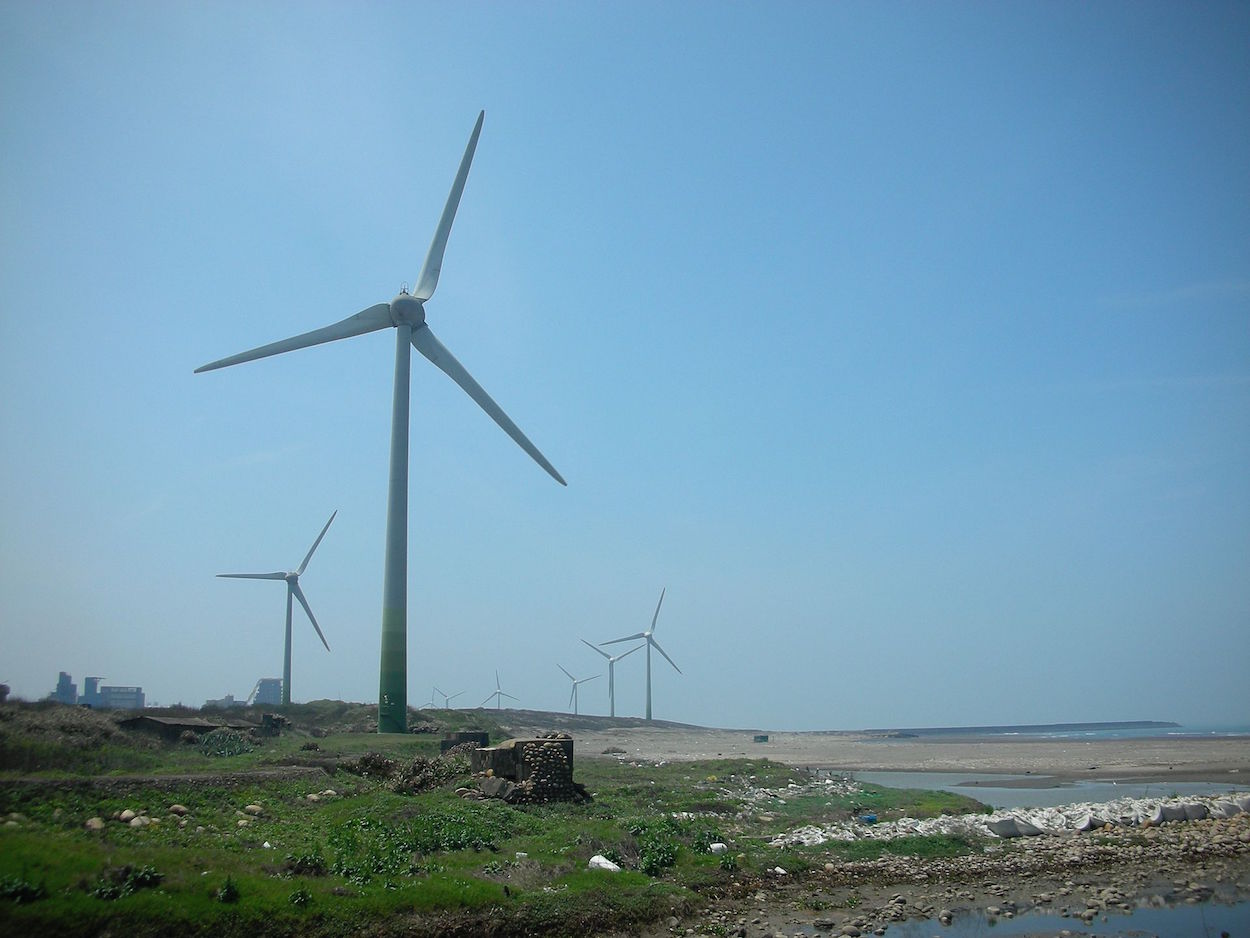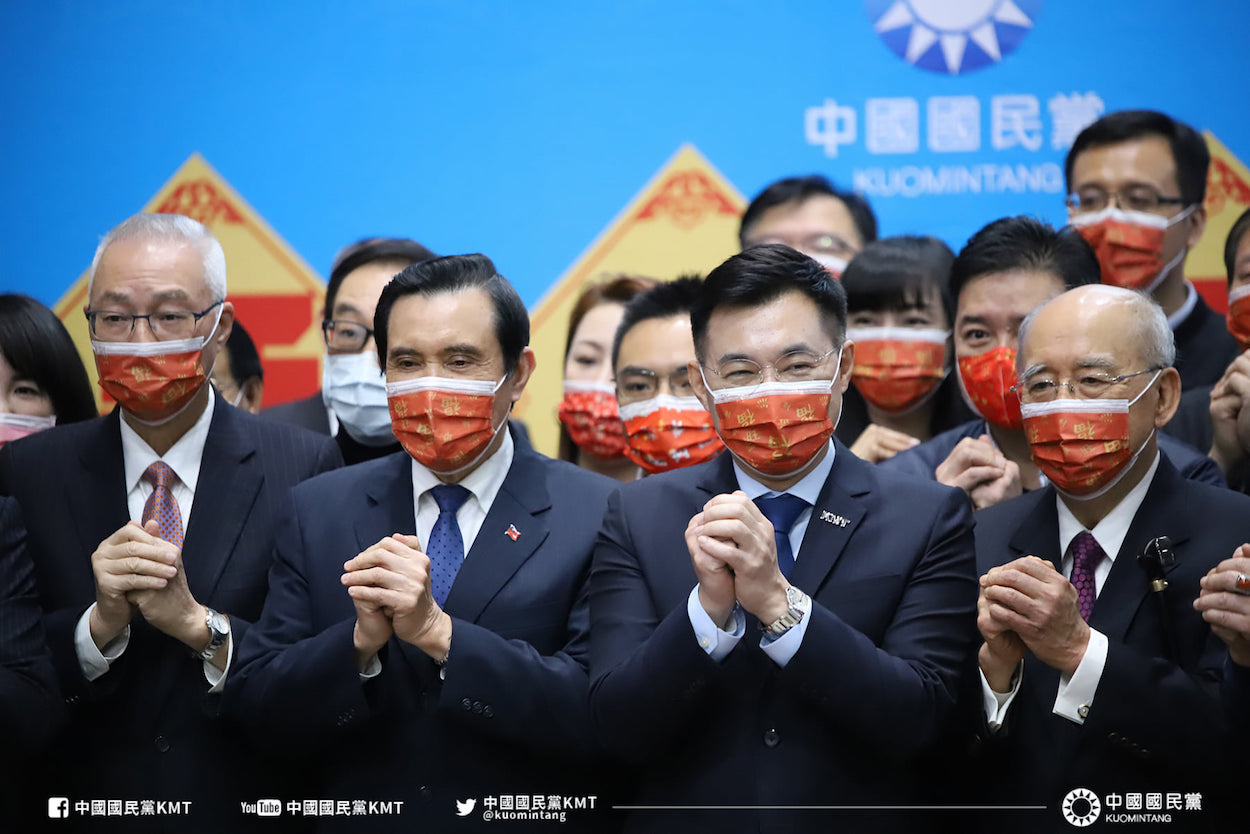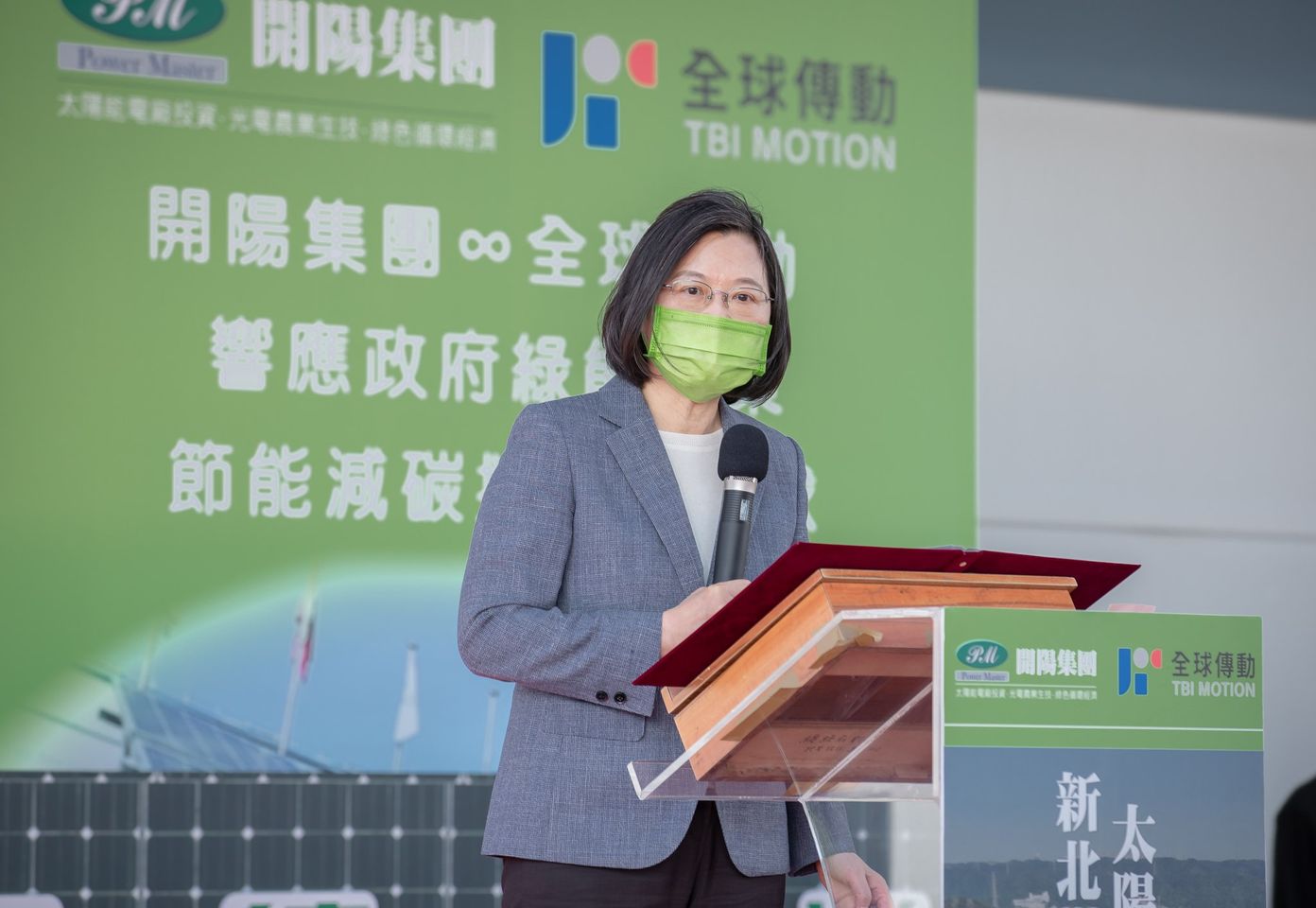by Brian Hioe
語言:
English
Photo Credit: lienyuan lee/WikiCommons/CC
CONSTRUCTION PLANS for the No. 3 liquified gas terminal by the Central Petroleum Company (CPC) near the coast of the Datan Borough, which is located in the Guanyin District of Taoyuan, has led environmental groups to call for a national referendum on the issue. Environmental groups fear that the development of the gas terminal will damage algal reefs off the Taoyuan coast with 7,500 years of history.
The referendum has entered the second stage of the petition phase needed for the referendum to be held, having originally been organized by the Rescue Datan’s Algal Reefs Alliance last year. While the group has collected 96,000 signatures of Monday, the petition will need to collect 250,000 signatures by Sunday in order for the petition to advance—something that will prove difficult for environmental groups, given this timeline.
 The Guanyin District of Taoyuan. Photo credit: Foxy Who/WikiCommons/CC
The Guanyin District of Taoyuan. Photo credit: Foxy Who/WikiCommons/CC
For its part, the Tsai administration has defended the gas terminal, which approved construction plans for the terminal in 2018. Minister of Economic Affairs Wang Mei-hua has claimed that the gas terminal would only have “minimal impact” on the coral reefs and that the gas terminal is vitally necessary for Taiwan’s energy needs.
According to Wang, lack of storage for nuclear fuel rods led to reduced capacity for the Guosheng No. 2 Nuclear Reactor, forcing the reactor to shut down six months ahead of schedule in June, and to operate at 80% capacity until then. As such, Wang claims that the speedy completion of the gas terminal is necessary for Taiwan. One also notes that many posts have appeared on social media in past days downplaying the effects of the gas terminal.
Although some have called for relocating the gas terminal to off the coast of Taipei, development may be too far advanced for the terminal to be easily relocated. Similarly, some have pointed to that abruptly stopping the gas terminal will affect overall plans by the Tsai administration to switch toward renewable forms of energy.
But what has provoked a number of strong reactions among environmental groups in recent days is that the KMT has jumped onto supporting the referendum proposal in the last two weeks, accusing the Tsai administration of endangering Taiwan’s environment through its energy policies. This would be the latest of a series of referendum proposals that the pan-Blue camp is hoping to leverage on to target the Tsai administration. This includes pan-Blue pro-nuclear advocates organizing a referendum calling for the restart of the controversial Nuclear Reactor No. 4, claiming that nuclear energy is necessary for Taiwan to clear up longstanding problems regarding air pollution, and the KMT organizing a referendum against the Tsai administration opening Taiwan to imports of ractopamine-treated pork from the US.
 Former president Ma Ying-jeou (center-left) and current KMT chair Johnny Chiang (center-right). Photo credit: KMT/Facebook
Former president Ma Ying-jeou (center-left) and current KMT chair Johnny Chiang (center-right). Photo credit: KMT/Facebook
More broadly, one observes a pattern of the KMT seeking to co-opt progressive or historically pan-Green causes as of late. The co-organizer of this year’s commemoration of the 228 Massacre, the Taiwan Nation Alliance, backed out of the commemoration after suddenly being informed that former president Ma Ying-jeou had been invited to the commemoration by the other co-organizer, the 228 Memorial Museum in Taipei. The annual Autumn Struggle labor demonstration was accused of being co-opted by the KMT last year after the labor demonstration shifted focus to address the issue of ractopamine-treated pork imports and saw an influx of deep Blue attendees, with KMT politicians having a strong presence at a demonstration that has traditionally shunned politician.
With it feared that the KMT will use the referendum as a means of rallying pan-Blue supporters, it has become a debated issue as to whether environmental groups should support the referendum or not. Environmental groups have historically hewed pan-Green, with the DPP having historically opposed nuclear energy and called for the development of renewable energy sources.
In many ways, the environmental movement has been a key incubator of the pan-Green camp over past decades. One notes that the environmental movement decreased drastically in strength once the DPP took office, with large annual environmental protests such as the yearly march held on the anniversary of the 2011 Fukushima disaster declining dramatically in size, while large labor demonstrations could still take place after the Tsai administration took office. To this end, one expects the pan-Green NPP, which is also backing the referendum, to be heavily criticized for its stances by members of the pan-Green camp who view its criticisms of the DPP as giving ammunition to the pan-Blue camp. The DPP has sought to counter-attack against the KMT by criticizing its planned referendum on nuclear energy.
It may be, however, that the issue of the No. 3 liquified gas terminal is an issue on which the DPP and KMT have effectively traded positions. Though the Tsai administration approved plans for the gas terminal, it was the KMT that originally proposed building a gas terminal when it was in power. Unsurprisingly, the Tsai administration has pointed to the reduction of the gas terminal to 10% of the size proposed by the KMT in order to deflect blame away from itself and suggest that its approval of the gas terminal development plans was not without environmental considerations.
 Taiwanese president Tsai Ing-wen. Photo credit: Tsai Ing-wen/Facebook
Taiwanese president Tsai Ing-wen. Photo credit: Tsai Ing-wen/Facebook
However, this would likely be one of the many issues on which the KMT and DPP have effectively switched positions between when they held power and when they served as the opposition. The same would be true of the ractopamine pork issue, seeing as the Ma administration also sought to open Taiwan to pork imports from the US, something that was then resisted by Tsai Ing-wen and the DPP, before the KMT and DPP traded places on the issue once the Tsai administration took power. Likewise, despite that the Tsai administration still publicly vows to phase out nuclear power, the Tsai administration itself quietly approved nuclear restarts once in office.
The retrenchment of the DPP once in power should not surprise, nor should the political opportunism of the KMT. That being said, it is to be seen whether the KMT will, in fact, succeed in swaying environmental groups to its side through backing the referendum on the No. 3 liquified gas terminal. One expects much in-fighting to ensue among environmental groups going forward.

